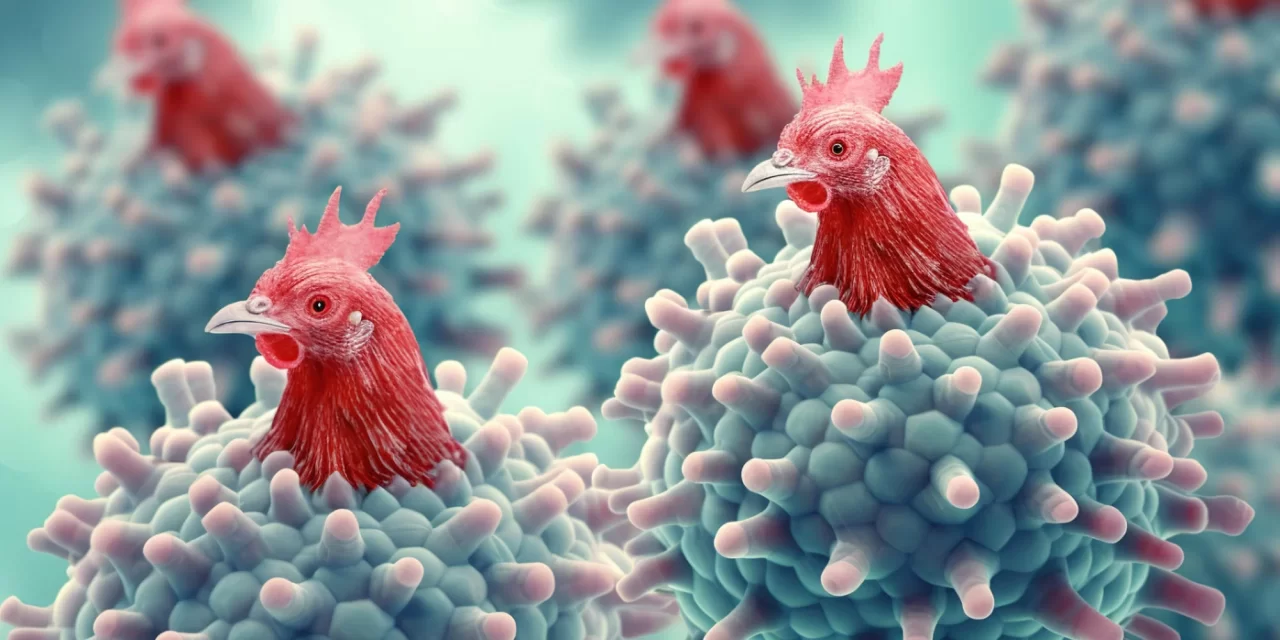California has declared a state of emergency in response to the ongoing spread of bird flu, which has been ravaging dairy cattle across the state and causing sporadic illnesses in humans. The declaration raises serious concerns about the virus, which has been infecting wild birds, commercial poultry, and several mammal species, including dairy cows.
The Situation in California
California’s Governor, Gavin Newsom, announced the state of emergency to allow state agencies to respond more effectively to the outbreak. Bird flu, also known as Type A H5N1, was first detected in U.S. dairy cattle in March and has since been confirmed in at least 866 herds across 16 states. California has identified the virus in approximately 650 dairy herds, representing about three-quarters of all affected dairy herds in the U.S.
The virus was first detected in the Central Valley of California in August and has now spread to dairy farms in Southern California. The state’s agricultural officials are actively monitoring large milk tanks during processing, with hopes to limit further contamination.
“This proclamation is a targeted action to ensure government agencies have the resources and flexibility they need to respond quickly to this outbreak,” said Newsom in a statement.
Public Health Concerns
While there are no reports of person-to-person transmission of the virus, the spread of H5N1 remains concerning. The Centers for Disease Control and Prevention (CDC) has emphasized that the general public is at low risk, and no evidence suggests the virus has mutated to spread more easily among humans. However, flu experts acknowledge that the situation is evolving, and mutations in the virus could change its trajectory.
“The entirely unsatisfactory answer is going to be: I don’t think we know yet,” said Richard Webby, an influenza expert at St. Jude Children’s Research Hospital. Experts are cautious because the H5N1 virus has the potential to mutate rapidly, increasing the risk of more severe outcomes.
Rising Concerns About Severe Illness
While most of the roughly 60 confirmed human cases in the U.S. have been mild, this week saw the first known severe illness linked to bird flu. The patient, an elderly individual in Louisiana with underlying health conditions, is in critical condition after exposure to a flock of sick birds. This marks the first confirmed case of the virus being transmitted through direct contact with backyard birds.
Previously, infections in the U.S. were largely confined to farmworkers who had direct exposure to infected dairy cattle or poultry. A few cases remain unexplained, including a child in California and an adult in Missouri.
Health experts caution that as more people become infected, the likelihood of more severe cases increases. Since 2003, nearly 1,000 human cases of H5N1 have been reported globally, with over half of those infected dying, according to the World Health Organization.
Protecting Against Bird Flu
Individuals who work closely with animals—particularly those in the dairy and poultry industries—are urged to take extra precautions. The CDC recommends using respiratory and eye protection, as well as gloves, when handling potentially infected animals. Farmworkers in California have been encouraged to get flu shots to protect against both seasonal flu and the risk of co-infection with H5N1, which could potentially lead to more dangerous mutations.
Public health experts also advise avoiding the consumption of raw milk, as it can harbor the virus. While pasteurized milk is safe to drink, unpasteurized milk has been found to contain high levels of the H5N1 virus. In fact, recent recalls of raw milk products in California have been linked to the outbreak, with two cats in Los Angeles dying from bird flu after being fed contaminated milk.
Ongoing Efforts to Contain the Virus
The U.S. Department of Agriculture has increased testing of raw milk across the country in an effort to contain the outbreak. A federal order issued this month mandates testing in 13 states to help detect the virus in milk before it spreads further.
As California and other states continue to respond to the bird flu crisis, health officials are urging vigilance and caution, especially for those who work in agriculture or come into contact with farm animals. The outbreak has shown the potential to escalate quickly, and ongoing efforts will be critical in minimizing its impact on both public health and the agricultural industry.












